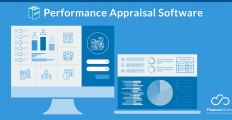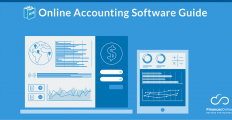
Understanding the relationship between saving, spending and the “right time” can optimize the value of your hard-earned money.
So much has been said about the value of saving, that only a foolhardy individual will still insist spending money as it comes is the better way to live. However, there are some instances in one’s life when rigorous, iron-handed saving can have a reverse impact on finances. This article will give you a clear guide in understanding the concept of saving, spending and “the right time.” Having a good understanding of how these three are related can help you maximize the value of your money, enjoy what it can do, without running the risk of being shortchanged or making a bad money decision.
While saving money is all good, saving for the sake of stocking up money is never a good mindset. Saving is not hoarding. We should save with a purpose, not to have savings just to have something to show for it. In fact, in clarifying savings attitude that borders on impractical money austerity, saving to the point of hoarding can even backfire: one ends up losing more, either in the amount of money or its value.
So when is it NOT wise anymore to hold on to a saved fortune? Simple: when it is already the right time to spend it. Because if you hold on to your money longer than that, chances are you will actually lose money. What are these situations and how do you know it’s the right time to start spending and stop saving?
Read on:
1. YOUR FIRST HOME AND CAR

Your first home and car are two important things you can’t put off for too long to buy.
For really important purchases that you need, it may be good to set a definite time period when to have these things bought or purchased already. A house and a car are some of the things one cannot wait for too long to get, while holding on to the money saved in a bank. These purchases have constantly increasing price value, though they may depreciate after some time. Determining when to buy your first car and home is not as hard as other spending decisions. There will always be that point in your life where you cannot put off getting them, especially if you have the savings.
And when the time comes that you need to upgrade (ex. a studio condo to a starter home, a starter home to a bigger family house, a family house to a smaller, manageable retirement home), you can always put your property up for sale. This is a common and simple way to really maximize the value of a good amount of money saved and earmarked for something important, and pulled out of the savings chest to be spent at the right time.
When you enjoyed and used to the fullest a thing that you paid good money for and after some time, you can still use it to “earn,” that’s a good and healthy use of money. One can even add up to the value of a former home by doing some simple refurbishments and upgrade. The same goes for cars.
Word of caution: The concept of “the right time” can be actually subjective, hence it is up to you to really evaluate your life’s needs and your finances. For instance, college may seem the urgent time to have a great car, but if you live within considerable distance within the campus, it is not practical to have one.
2. HIGHER EDUCATION

Funding your graduate education is one of the best money decisions you can make.
The cost of education is consistently on the rise, further affirming that education has become a privilege and not a right. While we won’t be discussing the social issues related to education, it is suffice to say that many are saving for their higher or graduate education. To make the most out of that savings, taking it out at the proper time to start studying again should not be delayed.
Saving up prior to starting a course is one of the most common ways to prepare funding for graduate school. For most people, this savings period is done in between work and school during undergraduate years, or from work earnings right after college. One’s graduate school funds from personal savings are often combined with money contributed or lent by family, and for some, student loans.
The average cost of graduate tuition and fees in the US range from $5,000 to $9,000 for in-state and in-district local residents, to $7,000 to $11,000 for out-state students. Typical room or board costs between $2,000 to $3,000. These would be conservative averages since private, bigger universities cost more. Add to that books, research, projects, field studies, group works and others. Insurance and health service fees will also be required.
Whether you intend to take a minimum load or study full-time, spending your savings earmarked for higher education to make graduate school happen at the soonest possible time could be one of the best decisions you can make when it comes to spending your savings. Tuition increases yearly, and annual inflation would likewise increase a student’s general cost of studying. The projections are quite high, so the earlier you study and finish, the better.
Probably the best part about getting your savings out to spend for higher education: you finish your program early, land a great job early, earn more early, start rebuilding your savings earlier (and pay graduate school loans if any, incurred to supplement your earmarked savings).
Word of caution: Having a post-graduate education doesn’t automatically entitle one to have higher salary than the standard (same position) pay, but enables one to have access to jobs and positions or ranks that have better pay scale, such as supervisory or managerial levels for corporate careers or full professorial positions in academic careers.
3. MAJOR MEDICAL NEEDS

Getting out your savings for medical emergencies means you value life over wads of cash.
Health can never take a backseat over money. Suffice to say that prioritizing health and well-being means choosing life over wads of cash. This is not to say that every time a health-related issue in our life comes up, no matter how mundane, we must be ready to dip into the savings account.
When we say spending for medication, we meant it in the logical and intelligent way, rightfully choosing to spend for expenses that concerns major medical needs that must not be delayed. These include medical emergencies and situations that calls for immediate relief of serious pains and discomforts and procedures that need to be performed as soon as possible like surgery and operation.
We’ve heard and read a lot about alternative healing, natural home remedies and self-medication. They may cost lower compared to hospitalization, prescription medicines, therapy sessions and follow-up consultations. But there are those who mistakenly think that these practices are cheaper medical substitutes, and there lies the risk not only of spending more in the long run, but risking life and limb. While we do not question the efficacy and results of these non-conventional choices, (for one, we think that natural home remedies are great!), some disastrous results stem from the misunderstanding that such practices are meant as “medical” options. They are not medical substitutes (even with the term “alternative” healing) and are strictly meant for situations different from conventional treatments and have their own appropriate use, for every person to decide and weigh the pros and cons of.
In other words, do not hesitate to take out savings for medication expenses meant to alleviate major discomforts and needless to say, prolong life and help one live in a much better condition and state of well-being.
Word of caution: Globally, healthcare-pharmaceuticals is one of the most lucrative and booming industries, with billions of dollars being spent in marketing products and services. As such, one must also discern wisely between really important health-related spending from products and services offered along the lines of health and wellness solutions. These include skin care lines, supplements with no approved therapeutic effects, cosmeceuticals (cosmetics promoted like pharmaceutical products due to certain ingredients), and wellness services like spa massages that should not take the place of physician-prescribed therapies and medications.
4. HEALTHY ‘BREAKS’

Shell out part of your savings for a much-needed break that could save your work, relationships and life.
Stress is deadly. The inability to cope with loads of pressures be it at work or in personal life can lead to serious results: from sickness to job loss to failed relationships in their own varying breadth and degrees. Medical professionals confirm that stressors (the chemical and the environmental ones) can be reduced and eliminated by taking healthy, well-deserved vacations from the people, places or things that are the causes of stress.
Our body has a natural way of telling us that it cannot take any more stress: sleepless nights, chronic flu, tensed muscles and indescribable feelings. Even depression is also attributed to unmanageable stress. When the body cries out in any of these forms, it is time to go to the bank, get some cash, get a good medical check-up and head out for a well-deserved vacation.
Choosing savings over one’s physical and mental well-being always backfires. Imagine when it’s too late to save one’s health (and sanity), it’s either you end up spending more, or you lose it all, meaning your money, your productive self and even your life. Not to mention the ill effects of this bad money decision on your family.
Word of caution: Getting out some serious cash from your savings to go on a “well-deserved break” should not be an excuse to justify spending for rash and reckless vacations and adventures. These ‘breaks’ can really drain one’s savings, with no real and productive effect to one’s physical, mental and spiritual well-being, and instead incur added strain on the pocket and more stress on the person without self-control.
5. TECHNOLOGY

Spend for personal technology that can improve major areas of your life and allows you to cope with today’s tech-driven time.
It was said that so much improvement in the overall way of life has been made in the last two centuries (20th and 21st) than in all of the time periods combined. That is one amazing thing to wonder about, to think that the Earth is already 4.54 billion years old! Surely, this is a great time to live.
It follows that in today’s modern world, one cannot afford to be left behind. For an individual to keep up with the times, it has become a necessity to spend for personal technology. This is true whether one is living in a sleepy, laid-back rural town or in a highly urbanized megacity. Whether it’s a satellite dish planted in a rice paddy or a signal booster attached on a high-rise window, technology looms as the great equalizer.
So when is the right time to spend for technology? When you urgently needed its benefits to help improve major areas of your life. These include enhanced work (productivity tools), connectivity (communicate and travel via tech highways across the globe), security (for yourself, your home, your car, your files and so much more), saved time and resources (automated transactions, online banking, conferencing, researching), social and interpersonal awareness (social media, access to information), and better ‘playing’ and learning environment.
When you know how to get the benefits you need from the personal tech you purchased, you reap instant ROI. Another practical reason to spend for important personal tech at the right time: the current price is always the lowest price you pay for the present value of the features you pay for. This means that yes, some of your tech purchases will dramatically depreciate in value over time but then you would have reaped its functionality and features (that are important to you) to the fullest until another technology, upgrade or update comes along It’s somewhat similar to the wisdom of not delaying to buy your first home or car when the right time has come for you to do it.
Word of Caution: Dipping into one’s savings to spend for technology should not be taken as a green light to splurge on the latest tech products. Remember, technology does not equate to “hardware.” We mean, the latest iPad model, cellphone, digicam, DSLR, e-book readers, game consoles and every peripheral that’s listed on your tech packaging. When one speaks of tech investment, it’s not actually what you can dangle around for the purpose of having a mobile conversation piece.
To invest in technology means aiming for and profiting from the benefits it can give you – what you personally and ultimately need. Any personal tech spending outside of that can wait awhile. For those who have to save long and hard for a coveted tech, spend with a benefits-focus consumer view. (Again, this can be subjective, in terms of what you desire and view as benefit.) Speaking in a frugal sense, an average savings can already cover the cost of tech that’s only the most important in terms of value to your work and personal life, minus the physical gloss and the sparkle.
To make it clearer: You don’t really need a Swarovski-studded case for your iPad or Playbook (or an iPad or a Playbook for that matter). The more profound approach is to check if you have the best download manager, can access Time online, install OpenERP, volunteer for Project Gutenberg and even use a simple barcode scanner, all of which help you cope with your school, work and life demands in this tech-driven time.

There will always be the right time to spend your hard-earned money. Know when to let loose and get the most out of your every dollar’s worth.
CONCLUSION
To sum it up, while it is tempting to hold on to money that one worked so hard for in accumulating, there will always be the right time to dispense it. The good thing is, you can always grow it back, a thousand fold, thanks to the wise decision you have previously made of spending your first savings that served as a stepping-stone investment towards earning and saving, and grow them into so much more.
By knowing what things in mind to prioritize and the right time to get them as well as developing the skills to spot the marketing hype from the sincere guides, readers can really discern what to buy at the right time, and spend wisely, happily and contentedly for the things that truly matter.























Message for Alex: Great article and of course, "the other side of life's financial equation". I for one am very anxious these days regarding finance decisions. I'm 61 years old and have been on beans-and-cornbread for so long, I find it very difficult to shoot the lock off the wallet and get to the spending/enjoying part. My wife and I did a great job of amassing financial stability over our work years. Kids colleges paid for before retirement, credit cards paid month to month, aggressive out year financial goals and a clear focus on getting there. We didn't deny ourselves for the most part, but we were on a mission. Now retired, our problem is that we find it very difficult to switch our behavior. We've gone way past our goals and financial expectations. Now I feel like I'm in a rush to spend. I mean after all, it's toward end game. I almost feel like I've been working for the kids or their kids. I'm so wrapped around the axle with living way below my means I feel embarrassed to say "I don't know how to spend". I don't mean a 30 dollar bottle of wine versus 10, or the motel 6 versus the Hilton. I'm talking major expenditures, buck list stuff.
So here's my spin. Although saving is important, financial balance is just as important. If you go too long in the ditch and don't look up along the way, you may end up with as much anxiety about "life has past you" as you ever would with "I should've saved more". Great article...thanks, Kenneth
There is always a certain nervousness about how much manoey to save. In the end, now at age 59, I am depending to downgrading my condo, put a large part of the sale into a life annuity, and enjoy life!
Frankly, I did not save much at all till now. Besides the small pension I would be getting anyway from my past savings, I spent every penny! No regrets about that.
I still would do it the same way, if I am told to do all over again. I experienced poverty and now middle class income. It does not mean I need to squirrel away everything and live life in the trenches, like you said.
Cheers!
Leave a comment!